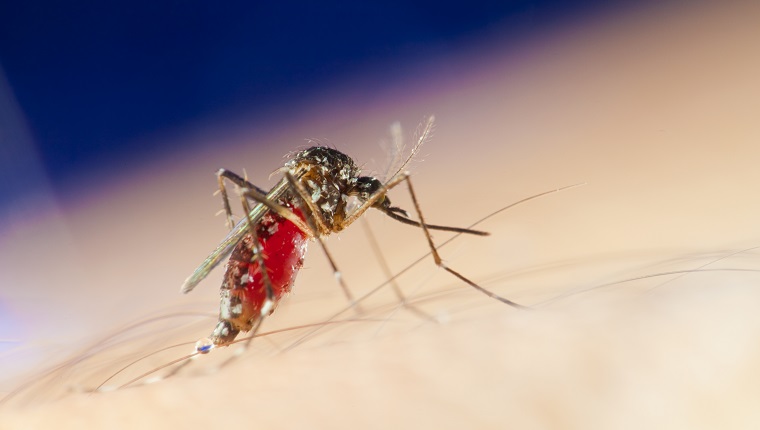Did you know that June 3rd is Insect Repellent Awareness Day? Me neither! But it’s always a good time to talk about insect repellent for our dogs so we can keep them safe from bugs and the diseases they can carry.
Summer is on the way, and of course the mosquitoes are about to come out in full force. That means buzzing and bites and itching — not just for us, but for our dogs, too.
As annoying as they are, mosquitoes, unfortunately, also pose a serious risk to dogs and their humans. Mosquitoes carry diseases, and it seems like every year these diseases become more and more severe.
However, if you happen to live in the southern California region, it appears as though a very special mosquito is beginning to make its way into the area. California residents need to be prepared, as do pet lovers who live wherever mosquitoes are common.
In fact, this invasive species has recently appeared in Vermont, though the state’s climate tends to keep them from spreading. Still, it shows the need for pet parents all over the US to stay vigilant, especially because the species has been spotted in the central and eastern US.
Here’s what you should know about the new mosquito on the block and ways to keep these bugs off your dog.
The New Mosquito In Town

The Aedes, or the “Asian Tiger Mosquito” which already sounds pretty intense, spread to California with shipments of bamboo back in 2001. That’s not all, however. A second Aedes species, believed to be from South America, is also making headway in the US.
The reason why this is so concerning is that the Aedes is known to specifically prefer humans. The species preceding in the region, the Culex, preferred to go after birds.
The Aedes is also known to attack people below the knee, possibly because they are less noticeable there, though it’s hard to say for sure. The Aedes species is also more aggressive, often biting several times.
Another important distinction is how the species propagates its eggs. Aedes mosquitoes have a tendency to lay their eggs in several locations to ensure that they survive. They may also attach their eggs to dry surfaces. “Just add water” and these creatures are birthed, then and there, even if the eggs are years old!
So what threat does this pose to pets, particularly in SoCal?
Well, for one, the probability of mosquito bites in SoCal is likely a year-round phenomenon now, as the region doesn’t have the luxury of a cold winter to kill off the living mosquitoes.
Because of this, year-round exposure to mosquitoes will mean SoCal residents need to ensure their pets are up to date on all vaccinations, as well as taking precautions against heartworm, West Nile, tularemia, and more.
How Can You Keep Yourself & Your Dog Safe From Mosquitoes?

There are some pretty intense ailments that both you and your dog can fall victim to because of mosquitoes. But sometimes the things made to ward off mosquitoes can be harmful, too!
You should discuss safe insect repellents with your veterinarian before you try anything you find online, including the following solutions.
If you’re looking for a natural remedy to keep you and your pup safe in the upcoming months, there are plenty of natural bug sprays that pet parents make using essential oils.

The most common you will see is lemon eucalyptus oil, which is the only natural oil recommended by the Center for Disease Control and Prevention (CDC). Other plant-based oils have insect repellant properties, such as lavender, rosemary, basil, and peppermint.
Be sure to dilute any oils you use, as they are very powerful for dogs. Some dog parents feed their pups small amounts of garlic, which can have insect repelling properties for dogs and humans. Remember to give garlic in moderation, however — about 1/4 clove of regular sized garlic per ten pounds — and always ask your vet first.
You can find more information from a trusted vet. They may suggest you try a mosquito preventative medication for your dog or another solution.
It will be up to you as a pet parent to choose which type of prevention to use, but don’t let your dog go without any mosquito repellent at all.
Do you have any tips or tricks for natural mosquito prevention? How do you keep your dog safe from insects and their diseases in summer? Let us know in the comments below!
You May Also Like:




